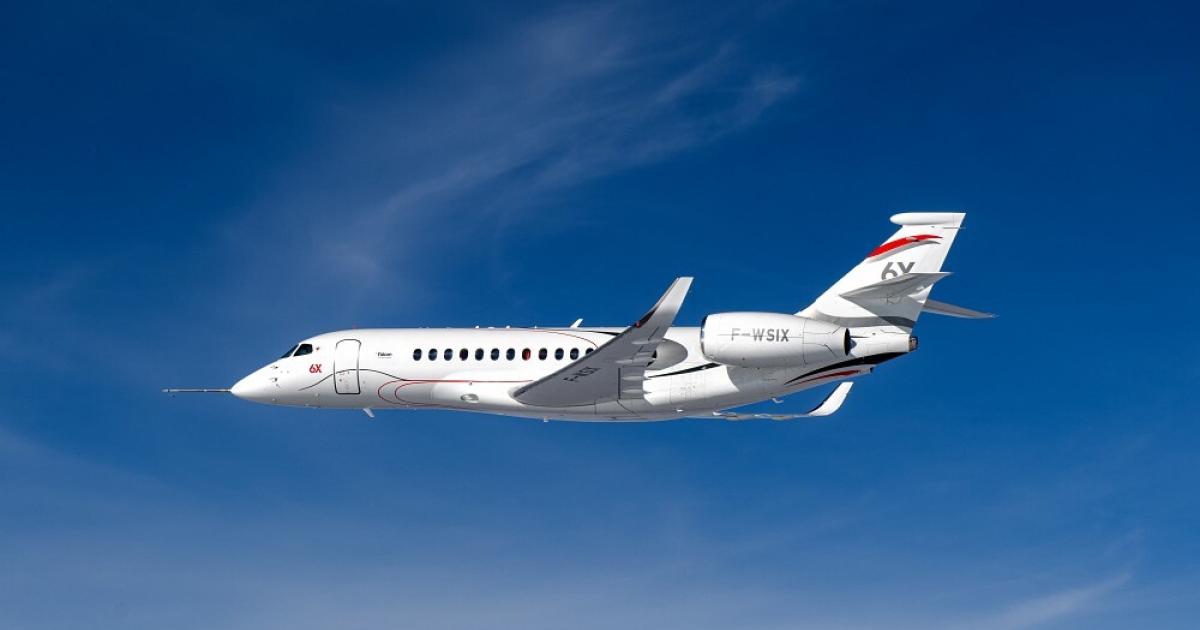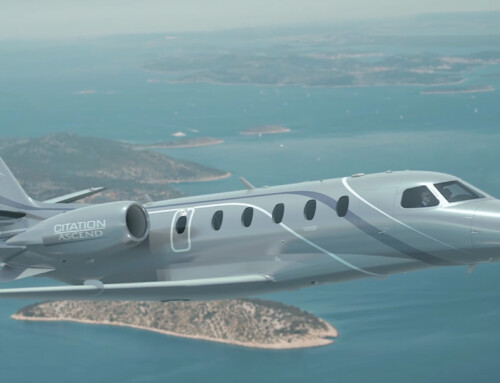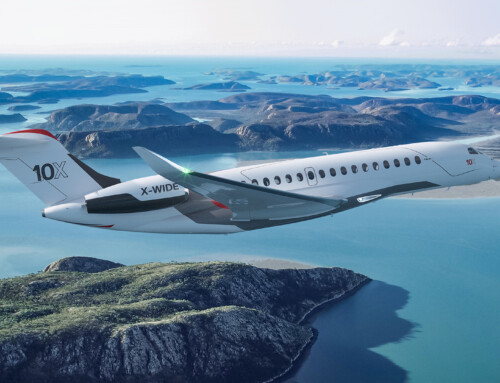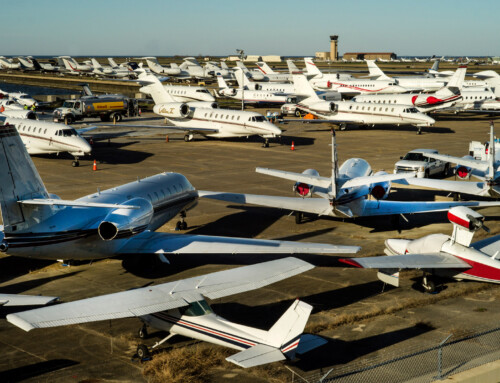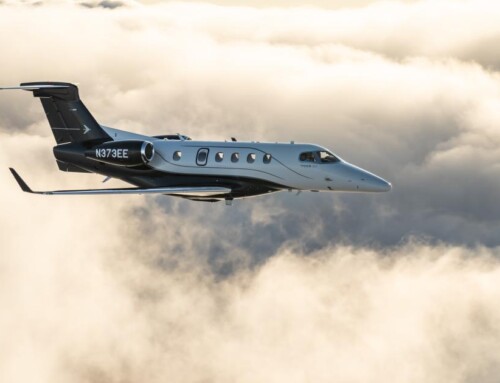Falcon Delivery Dip Hits Dassault’s 2023 Revenues
Revenues last year fell by almost 31 percent to €4.8 billion ($5.2 billion) from €6.9 billion in 2022.
Dassault Aviation is working hard to get better control of its supply chain as it targets increasing deliveries of its Falcon business jets to 35 this year, bringing the total closer to the pre-Covid delivery tally of 40 units in 2019. Announcing 2023 financial results today at a Paris press conference, the French manufacturer said it handed over 26 Falcons last year.
That was six fewer aircraft than in 2022 and missed its guidance set last March for 35. The shortfall was reflected in an almost 31 percent dip in revenues last year, which fell to €4.8 billion ($5.2 billion) from €6.9 billion in 2022.
Dassault also was slightly short in deliveries of Rafale fighters, with 13 handed over last year instead of the projected 15 units. It handed over 14 Rafales in 2022.
In both business units, chairman and CEO Eric Trappier pointed to supply chain issues for the declining rate of deliveries, indicating that the problem is more severe with the Falcon production line. “It’s more complicated for the Falcons because there are several supply chains with different suppliers for the 8X, for the 900LX, for the 2000LXS, for the 6X, and also for the 10X,” he told reporters.
Another factor has been the later-than-anticipated type certification and entry into service of the ultra-long-range Falcon 6X. The wide-cabin business jet received simultaneous certification from EASA and the FAA in August, and the first aircraft entered service with Dassault itself in November, with the first external customer delivery occurring last month. Subsequently, 6X deliveries that had been scheduled for 2023 were postponed to this year, Trappier explained.
Dassault warned that certain supplier weaknesses coupled with capacity shortages, mainly for aerostructures, will continue to weigh on its business this year. However, Trappier maintained that “things are improving and internally we’re trying to have a better picture of the supply chain in order to anticipate what’s going to happen with [distressed] suppliers.”
The French OEM has moved to centralized management for aerostructure supplies to implement corrective action. In some cases, it is providing support, including financial, to some of its subcontractors, while also advancing its “Make in India” strategy to move some production.
Dassault Reliance Aerospace Limited (DRAL), the joint venture of Dassault and India’s Reliance Aerospace, is already producing the T12 and T4 sections for the Falcon 2000. “The parts are [manufactured] on time [and are] up to our quality standards. They are cheaper than in France. So that’s a very positive experience,” Trappier commented.
Meanwhile, Dassault Aviation is actively involved in the development of the Indian supply chain and plans to sign contracts in early 2024 with several Indian companies, including Dynamatic for T5 tanks for the Falcon 6X and with Aerolloy to develop a titanium foundry branch.
Last year, Dassault collected orders for 23 new Falcons, which was just over a third of the 64 units booked in 2022. “We’re selling pretty well in the U.S., not so much in Europe, and maybe this is reflecting some concerns in Europe,” Trappier said. “From the economic standpoint, the U.S. market is doing well, there is full employment. But in Europe, some countries are in a recession, some are close to recession, and some have very high debts. This will prompt some stringent budget decisions at the national level for some countries. So this is not an encouraging environment to buy a business aircraft in Europe.”
Meanwhile, Dassault has high hopes for its in-development Falcon 10X, especially among Asian customers. This model is expected to be certified and enter service in 2027—two years later than previous estimates.
The French group’s total 2023 order intake amounted to €8.3 billion, compared with €20.9 billion in 2022. Defense orders represented the bulk, totaling €6.5 billion owing to the sale of 60 Rafales—42 for the French military and 18 for export customers.
As of December 31, Dassault’s order backlog included 84 Falcons, down from 87 at the end of 2022. The backlog for Rafale increased from 164 to 211. The group’s adjusted net profit increased year-on-year by 6.7 percent, to €886 million.
Source AIN Online

 Hawker-Beechcraft Hawker 400XP
Hawker-Beechcraft Hawker 400XP Cessna Citation V
Cessna Citation V Beechcraft Premier IA
Beechcraft Premier IA Beechcraft King Air 350
Beechcraft King Air 350



